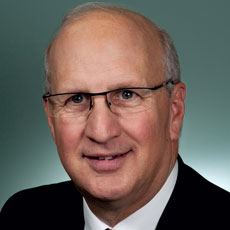
Cultivating intergenerational relationships has become a top priority for senior care providers because of the demonstrated benefits to both seniors and young people. According to a University of Florida paper on Developing Intergenerational Relationships, benefits range from learning new skills, providing children and older adults with a sense of purpose, reducing the likelihood of depression in the elderly, and keeping stories and history alive. To narrow the gap between older and younger generations, many senior care providers are incorporating creative programming – some going as far as measuring tangible benefits such as improvements in reading scores and childhood nutritional habits.
But recent experiences in southern Africa have caused me to reexamine how we engage seniors. In societies that have few resources and great need, intergenerational relationships have become a key to survival – and offer lessons on how to create meaningful roles for seniors in our society.
As Chairman of the Board at Forgotten Voices International, an eight-year-old ministry that helps children in Zimbabwe and Zambia who have been orphaned by AIDS, I have had the opportunity to visit some of the communities that are being impacted by the AIDS epidemic in southern Africa. It is estimated that more than two million adults have fallen victim to AIDS, producing between two and two and a half million orphans. In these communities, family and community elders care for the young orphans, creating an intergenerational caregiving relationship that becomes critical to their mutual survival.
In this context, there are a few things that we can learn from our friends in southern Africa about the importance of intergenerational relationships and how they can be strengthened to the mutual benefit of seniors and younger generations.
Respect and Wisdom
In Zambia and Zimbabwe, respect is something seniors are afforded because of the perception that living longer gives you deeper insights into life, and life experiences create wisdom. Children and adults alike respect their elders for the wealth of knowledge they posses, and it is a gift to learn life skills from an elder. In the United States, respect is something to be earned and is connected to your perceived value to society. Seniors are sometimes viewed as a burden because of the resources they consume. On a practical level, in Africa, child rearing is something that is learned from your mother or grandmother, whereas in the United States, we more quickly turn to outside resources like books and online forums.
The lesson learned here is that we need to give seniors and children an opportunity to learn from each other and in turn, build mutual respect.
One way senior care providers may aid in the building of mutual respect is through partnerships with local elementary schools. One example within Presbyterian Senior Living is a Pen Pal program, creating connections between students and seniors. Through this program, children learn from a generation that was raised to respect each other and its elders, and understand that wisdom can be gained from those who have gone before them. Alternately, residents gain a better understanding of the challenges faced by younger generations and appreciate the difference in their life experience.
The Value of Community
In the African model, being in the community is a highly personal experience. This means that people work together for the common good, lifting each other up when support is needed. Nowhere is this more evident than in orphan care. When orphaned children have no family left, others step in to fill the role of caregiver. This is why it is estimated that 75% of the households in Zambia care for an orphaned child. (In the U.S., with adoptions and government-assisted foster care programs, this number is closer to 1%). In the United States, our definition of community has become less personal, changing from neighborhoods to affinity groups based on common interests, often facilitated by technology. Think of Facebook friends and online communities, and you get the picture.
Encouraging volunteer activities with a community’s neighbors and outside of the retirement community campus is one way senior care providers can promote a greater sense of community. Doing so creates the personal connections that are the fabric of community life and is by its definition an intergenerational undertaking. Residents and employees can utilize churches, civic clubs, and local community mission activities to recreate the close and personal, authentic relationships. Senior living communities that recognize this gap are empowering their residents to stay involved in their communities, giving back not only through the skills they’ve acquired but also by teaching through example that a simple phone call or visit to a neighbor trumps an email or text message any day.
Willingness to Give Time, Attention and Resources on a Sacrificial Level
When a child is in need, it goes without saying that Zimbabwean and Zambian elders will do all that is within their power to care for that child. Whether the child is a blood relative or an orphan within the community, southern Africans make personal sacrifices every day to care for children orphaned by the AIDs epidemic. As an example, it is not unusual for orphans to come to the church on Sunday morning looking for food or shelter. Services are delayed as immediate needs are met and congregation members volunteer to take responsibility for a child. Sometimes these arrangements are temporary until other family members can be located. Often a child finds their new family at the doors of the church. One can only wonder what church attendance in the United States would be like if the prospect of returning with a new member of the family was a possibility.
Our friends across the Atlantic have much to teach us about being more selfless with our time and proactively seeking out others needs with the intent of fulfilling those needs. Senior living communities are uniquely positioned to change the shape and character of local communities, and maybe even society as a whole. By freely sharing their time and talent, seniors can generate respect and become more valued members of society. Increased exposure to positive aging role models can also close the generation gap between seniors, adults, and younger children. It is up to us as the leaders in senior living organizations to create and sustain the environments that encourage this transformation. Lessons learned from Africa can help us on our journey.
Stephen Proctor is the CEO at Presbyterian Senior Living. More information on Forgotten Voices International can be seen here.





